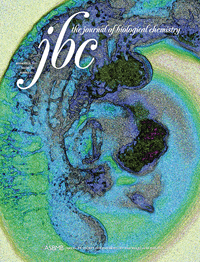 Readers of this blog know that we have had a few stock villains over the years. High on the list has been the Journal of Biological Chemistry (JBC), and we’ve criticized repeatedly the journal’s unwillingness to provide any information about the reasons for retractions. For as long as we’ve been around, the JBC’s stock retraction statement seemed to be:
Readers of this blog know that we have had a few stock villains over the years. High on the list has been the Journal of Biological Chemistry (JBC), and we’ve criticized repeatedly the journal’s unwillingness to provide any information about the reasons for retractions. For as long as we’ve been around, the JBC’s stock retraction statement seemed to be:
This article has been withdrawn by the authors.
Times have changed. According to an editorial published earlier this month, the JBC says it will now be giving readers as much information as possible about the retraction notices it prints. The editorial, written by interim editor-in-chief of Vanderbilt University, alludes to the heat the journal has been taking about its opacity:
As members of that community who have indeed described the notices as “opaque,” we say, Amen to that! But before we pop corks, we’ll note that the JBC did have a cup of coffee with more transparency before, when its publisher, the American Society for Biochemistry & Molecular Biology, hired an ethics manager for its journals. That was almost exactly three years ago.
In the intervening time, we’ve seen a smattering of informative notices, but the only consistent change was that retractions required by Office of Research Integrity (ORI) investigations were linked to the relevant ORI reports.
So, although we have reason to be cautious here, we’re delighted by the change in policy and commend the JBC, and its editorial leadership, for acknowledging the importance of clear and informative retraction notices.
Like Retraction Watch? Consider making a tax-deductible contribution to support our growth. You can also follow us on Twitter, like us on Facebook, add us to your RSS reader, and sign up on our homepage for an email every time there’s a new post. Click here to review our Comments Policy.
F. Peter Guengerich is a very well-respected scientist. I have no doubt that he knew JBC had to straighten out in that regard, and stop covering for the liars and cheats.
Good work RW! The scientific community and the public have a right to know the “how and why” behind deception in the scientific record just as the authors journals like to bask in the glory of “discovery” they should share in the shame of deception.
Papers may be retracted for many reasons apart from misconduct, as this policy will now clarify.
This is good news. However, it does not go far enough. All past retraction notices should be upgraded and corrected to include as much information as those that will be issued from now on.
Please stop dumping on JBC. They’re run by real scientists, and in the past, although notices may have been frustratingly opaque, they have taken potential issues seriously and dealt with them promptly. The #1 issue for me is that problematic data be labeled as such as soon as possible, so that it doesn’t mislead others, and JBC has done a concientious job of that.
If it is run by real scientists, one would have expected a little bit more openness, in my opinion. Also, most notices did not at all label problematic data as such. They just retracted the paper, without telling anyone whether this was due to problematic data, plagiarism, duplication, mistakes, legal reasons, or whatever other reason there may be to retract a paper.
Would these be the same “real scientists” who conducted “peer” review and edited the now-retracted papers, approving them for publication?
The editorial announcing this is is hidden behind a paywall – is it too much to hope that the retractions will be made available to everyone?
Retraction tends to have a negative connotation as many associate it with author misconduct. By providing the exact reasons behind the decision to retract a paper, detailed retraction notices can help in reducing the stigma surrounding retraction. It’s heartening that the journal has changed its policy for the better.